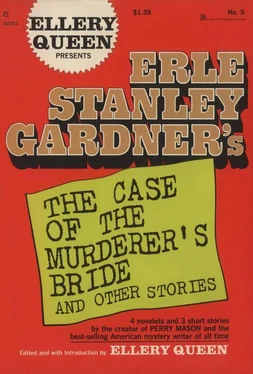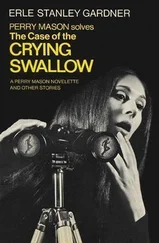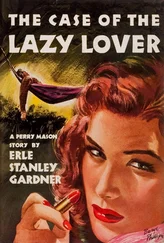Erle Gardner - Erle Stanley Gardner’s The Case of the Murderer’s Bride and Other Stories
Здесь есть возможность читать онлайн «Erle Gardner - Erle Stanley Gardner’s The Case of the Murderer’s Bride and Other Stories» весь текст электронной книги совершенно бесплатно (целиком полную версию без сокращений). В некоторых случаях можно слушать аудио, скачать через торрент в формате fb2 и присутствует краткое содержание. Город: New York, Год выпуска: 1974, Издательство: Davis Publications, Жанр: Классический детектив, на английском языке. Описание произведения, (предисловие) а так же отзывы посетителей доступны на портале библиотеки ЛибКат.
- Название:Erle Stanley Gardner’s The Case of the Murderer’s Bride and Other Stories
- Автор:
- Издательство:Davis Publications
- Жанр:
- Год:1974
- Город:New York
- ISBN:нет данных
- Рейтинг книги:4 / 5. Голосов: 1
-
Избранное:Добавить в избранное
- Отзывы:
-
Ваша оценка:
- 80
- 1
- 2
- 3
- 4
- 5
Erle Stanley Gardner’s The Case of the Murderer’s Bride and Other Stories: краткое содержание, описание и аннотация
Предлагаем к чтению аннотацию, описание, краткое содержание или предисловие (зависит от того, что написал сам автор книги «Erle Stanley Gardner’s The Case of the Murderer’s Bride and Other Stories»). Если вы не нашли необходимую информацию о книге — напишите в комментариях, мы постараемся отыскать её.
Erle Stanley Gardner’s The Case of the Murderer’s Bride and Other Stories — читать онлайн бесплатно полную книгу (весь текст) целиком
Ниже представлен текст книги, разбитый по страницам. Система сохранения места последней прочитанной страницы, позволяет с удобством читать онлайн бесплатно книгу «Erle Stanley Gardner’s The Case of the Murderer’s Bride and Other Stories», без необходимости каждый раз заново искать на чём Вы остановились. Поставьте закладку, и сможете в любой момент перейти на страницу, на которой закончили чтение.
Интервал:
Закладка:
The officer twisted his face in an expression of distaste. A second drop caused him to sit up, throwing off the covers.
“Hey!” he said thickly.
Dr. Dixon grinned. “Come on, up and at ’em, boy! This is a new day.”
“What time is it?”
“Six o’clock.”
“Go away, that’s too early. No need to get up yet. We can’t even get any coffee. The people that run this place don’t stay here; they live seven miles up the road.”
“Never mind coffee,” Dr. Dixon said. “We’ll reconnoiter. Perhaps we can have a chance to talk with Ives before breakfast.”
“Slave driver,” Cortland groaned, getting out of bed.
Dr. Dixon plugged in his electric shaver and by the time Cortland was half through with his shower, the criminologist was walking slowly down the road to the water.
He moved toward the dock, then suddenly stiffened to attention, whirled, and started walking rapidly back up the hill to the cabins.
“Hey, Ed,” he said, “Ives’s boat is gone.”
“You kidding?” Cortland asked.
“No. It’s not there.”
“What about the automobile and the trailer?”
“They’re here.”
“Then they must have taken off for some rock hunting. They’ll be back for breakfast.”
Dr. Dixon frowned. “Hang it!” he said. “Perhaps Ives did suspect us. If anything happens... Well, it’ll be just too bad for him.”
“Don’t be too sure,” Cortland said pessimistically. “You have to have proof, remember? And the trouble with accidents is that the survivor always tells a plausible story; he’s the only witness and—”
“Come on,” Dr. Dixon interrupted, “let’s go.”
“Upstream or down?”
“We start upstream,” Dr. Dixon said. “They were downstream yesterday. They’ve probably gone up today.”
“We can’t get breakfast anywhere up there.”
“Yes, we can. Willow Beach. Twelve miles or so. We can be having hot coffee in an hour if you’ll just get started.”
They made the run up to Willow Beach. They saw majestic scenery, towering vertical cliffs reflected in placid water, the golden line of sunlight crawling slowly down the mountains. But there was no sign of Mr. and Mrs. Ives.
At Willow Beach they stopped for a fast breakfast and talked with a fisherman who had been out early and who said no boat had gone by.
Hurrying from the restaurant, they gassed up, opened the motor wide, and headed downriver. They gassed again at Bracket’s. By this time the sunlight was warm. The lake seemed calm, but looking along the reflected path of the sun one could see the glint of small ripples.
Corporal Cortland was running the motor. Dr. Dixon was carefully scanning the lake with the binoculars, frowning impatiently at the numerous coves in which a small craft might find concealment. Dr. Dixon felt he didn’t have the time to go into each one of those coves. A sixth sense gave him a feeling of urgency.
He wanted desperately to catch sight of Ives’s boat. Something seemed to tell him that this was the crucial day. It was exactly the sort of day that had been described in the newspaper clipping-warm with a faint breeze and the urge to swim becoming more and more a temptation.
Both above and below Bracket’s camp a rough attempt had been made to designate the miles by painting figures in white on rocks along the shore, or by arranging whitewashed rocks in the form of figures.
At seven miles below the landing Ed Cortland mistook the channel and went into a big bay, which finally curved back to disclose the true channel. Going around a point they came to where the lake broadened out into a vast sheet of water.
Now, from time to time, they saw other small boats. This caused more loss of time. Dr. Dixon had to study each boat with binoculars. Nor did he dare stop passers-by to give them a description of Ives’s boat and to ask if they had seen it. He did not want Ives to know that he was taking an unusual interest in him.
After the nine-mile sign Dr. Dixon found no more signs. There was, he felt, a ten-mile sign, but somewhere he had missed it. A growing tension developed inside him.
He moved aft to sit beside Ed Cortland at the tiller.
“Ed,” he said, “I’ve thought of something.”
“What?”
“The thing that happened last night. We looked into that trash barrel and—”
“And saw those tennis shoes,” Cortland reminded him.
“That’s what fooled us,” Dr. Dixon said. “Everything else that was in there was something you would have expected to find in a disposal unit out in front of cabins. The tennis shoes were unusual, so they attracted attention. Everything else was perfectly ordinary, except perhaps the broken pliers.”
“What are you getting at?” Cortland asked.
“Ives threw something in there,” Dr. Dixon said. “We thought it might have been the tennis shoes because they were unusual, but we can’t make his action in doing that sound logical because he carried something down with him under his left arm, and when he came back he dropped something in the barrel.” He paused. “There were two empty detergent boxes in it.”
“But what would a detergent have to do with murder?”
Dr. Dixon indicated the cushion on which he was seated. “The Coast Guard requires life preservers in a boat,” he said. “These cushions are filled with kapok. They act in the dual capacity of seat cushions and life preservers. The kapok is exceedingly light and it’s oil- and water-resistant. It’s buoyant, not only because of its own lightness, but because the oily surface repels the water and holds lots of air bubbles trapped inside the matted interior of the light, fluffy substance.
“Now, then, a detergent is a peculiar chemical compound. It consists of a substance which has an affinity both for oil and for water. It’s as though you had a long molecule, one end of which is fastened to the oil, the other end fastened to the water.”
“What are you getting at?”
“Put enough powdered detergent inside one of these seat cushions and throw it in the water,” Dr. Dixon continued, “and for a while nothing will happen. The outer surface is water-repellent, but as soon as water starts getting in, it will mingle with the powdered detergent and then more water will start getting in. The minute the powdered detergent mingles with the water, it becomes a wetting agent and the cushion will rapidly lose its buoyancy.
“When detergents were first invented, they conducted an experiment by putting a duck in the water to which a detergent had been added. The wetting agent caused the oily feathers of the duck to attract water; the duck sank to the bottom of the tank and would have drowned if they hadn’t taken it out.”
Ed Cortland looked at Dr. Dixon. “Then you think that Ives—”
“I think,” Dr. Dixon said, “that Lawrence Ives might have gone down to his boat, cut small openings in those kapok cushions, and filled both of them with powdered detergent. Then he might have punched holes in the covers with that icepick and put small pieces of tape over the cuts to keep the kapok from working out. In the event of an ‘accident,’ they would have to rely on the life preservers. And if Mrs. Ives can’t swim...”
Dr. Dixon left the sentence significantly unfinished.
“Good heavens!” Cortland said. “That clipping was about a swimming accident."
Dr. Dixon nodded. “Exactly. Suppose you were going swimming where you expected an accident to take place. Where would you go?”
“What do you mean?”
“Not out here in the main channel where a fishing boat might come by in time to perform a spectacular rescue. You’d go out where you would have privacy. Remember when we came around that stretch, we left a long sweep of water behind us back from the main channel. It’s just a hunch, Ed, and time is running out—”
Читать дальшеИнтервал:
Закладка:
Похожие книги на «Erle Stanley Gardner’s The Case of the Murderer’s Bride and Other Stories»
Представляем Вашему вниманию похожие книги на «Erle Stanley Gardner’s The Case of the Murderer’s Bride and Other Stories» списком для выбора. Мы отобрали схожую по названию и смыслу литературу в надежде предоставить читателям больше вариантов отыскать новые, интересные, ещё непрочитанные произведения.
Обсуждение, отзывы о книге «Erle Stanley Gardner’s The Case of the Murderer’s Bride and Other Stories» и просто собственные мнения читателей. Оставьте ваши комментарии, напишите, что Вы думаете о произведении, его смысле или главных героях. Укажите что конкретно понравилось, а что нет, и почему Вы так считаете.












